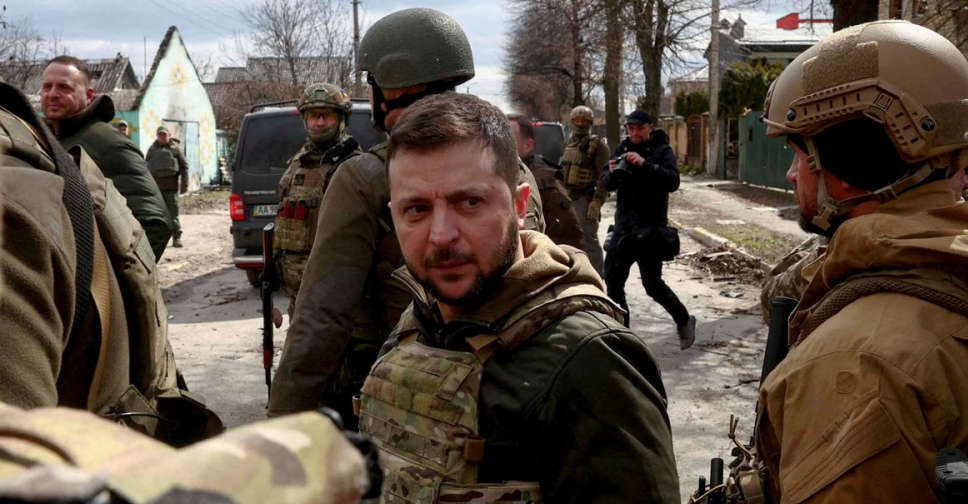
Ukrainian President Volodymyr Zelenskiy said that Russia could use chemical weapons and called on the West to impose strong sanctions on Moscow that would deter even talk of the use of such weapons.
There were unconfirmed reports on Monday suggesting that chemical weapons were used in the besieged southern Ukrainian port of Mariupol.
"We treat this with the utmost seriousness," Zelenskiy said in his nightly video address. He did not say chemical weapons had already been used.
"I would like to remind world leaders that the possible use of chemical weapons by the Russian military has already been discussed. And already at that time it meant that it was necessary to react to the Russian aggression much harsher and faster."
Petro Andryushchenko, an aide to the mayor of Mariupol, wrote on his Telegram channel reports about a chemical attack had not been confirmed and that he expected to provide details and clarifications later.
Pentagon press secretary John Kirby said the United States was aware of the reports.
"We cannot confirm at this time and will continue to monitor the situation closely," Kirby said. "These reports, if true, are deeply concerning and reflective of concerns that we have had about Russia's potential to use a variety of riot control agents, including tear gas mixed with chemical agents, in Ukraine."
The Russian invasion, which has killed thousands and displaced millions, has shifted from the gates of Kyiv to the east of Ukraine, with a huge offensive expected there. The European Union said on Monday that more sanctions on Russia are an option.
"It is time to make this package in such a way that we would not hear even words about weapons of mass destruction from the Russian side," Zelenskiy said. "An oil embargo against Russia is a must. Any new package of sanctions against Russia that does not affect oil will be received in Moscow with a smile."

 UK inquiry finds 'chilling' cover-up of infected blood scandal
UK inquiry finds 'chilling' cover-up of infected blood scandal
 Iranian President Raisi killed in helicopter accident, state media says
Iranian President Raisi killed in helicopter accident, state media says
 ICC prosecutor seeks arrest warrants for Israeli, Hamas leaders
ICC prosecutor seeks arrest warrants for Israeli, Hamas leaders
 Assange given permission to appeal against US extradition
Assange given permission to appeal against US extradition
 Israel intends to broaden Rafah sweep, Defence Minister tells US
Israel intends to broaden Rafah sweep, Defence Minister tells US




